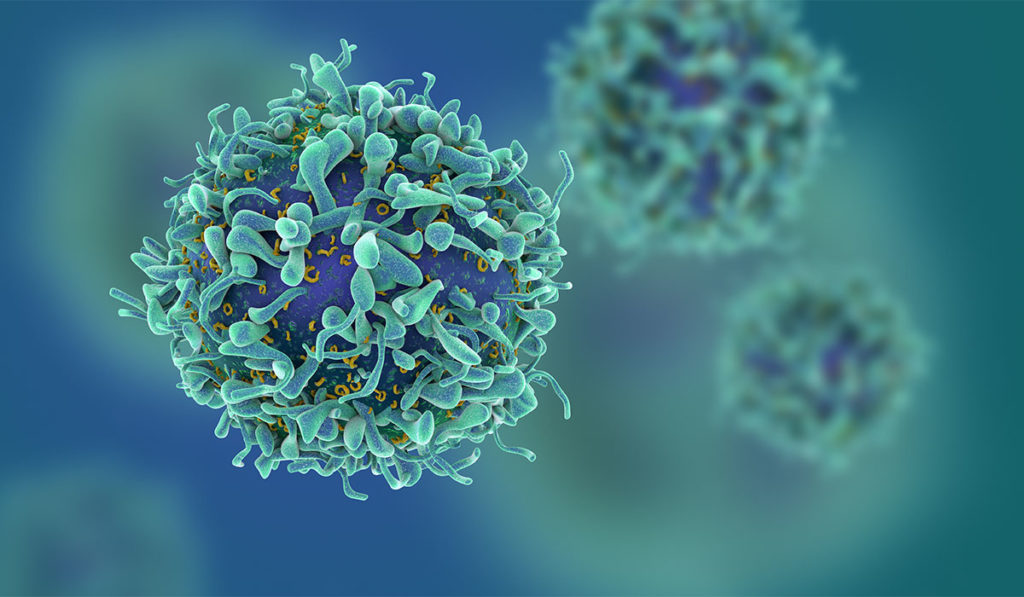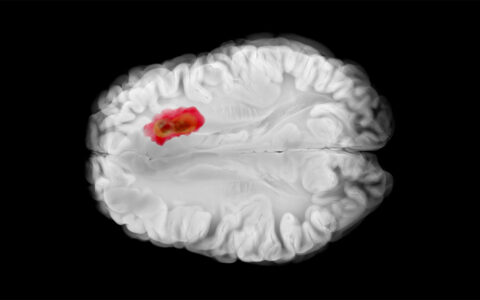Immune checkpoint inhibitor (ICI) drugs targeting the PD-1 molecular signaling pathway can help restore T cell immunity and boost anti-cancer responses. Anti-PD-1/PD-L1 therapies have shown to be effective against several types of cancer, including melanoma, non-small cell lung cancer and renal cancer.
However, research by Vanderbilt University Medical Center investigators has shown that fighting cancer by accelerating immune response can trigger significant complications. Javid Moslehi, M.D., director of the Cardio-Oncology Program at Vanderbilt, is an internationally-recognized expert on cardiovascular toxicities caused by ICI therapies.
“Immune checkpoint inhibitors have revolutionized treatments for many cancer patients but on rare occasions can be associated with inflammation of the heart or myocarditis,” Moslehi said.
2019 ASCO Presentation
During a session at the American Society of Clinical Oncology (ASCO) 2019 Annual Meeting, Moslehi discussed methods for recognizing and managing immunotherapy-induced cardiac toxicities.
Moslehi and other Vanderbilt colleagues, including melanoma expert Douglas Johnson, M.D., and cardio-oncology fellow Joe-Elie Salem, M.D., have been tracking fatalities linked to immunotherapies. The researchers used VigiBase, a global database of drug company complications maintained by the World Health Organization, to identify adverse cardiovascular reactions to these cancer immunotherapies.
In a study of ICI-related adverse events, published in Lancet Oncology, they found that fatalities occurred in half of myocarditis cases, 21 percent of pericardial cases (inflammation of the sac surrounding the heart), and six percent of vasculitis cases (inflammation of blood vessels). Fatalities from myocarditis were more common with the use of combination therapies (65.6 percent) than the use of a single therapy.
The Vanderbilt study is the most comprehensive case series to date tracking severe cardiovascular complications related to ICIs.
A New Syndrome
Moslehi noted that these responses represent a new clinical syndrome of myotoxicity associated with ICIs. The myocarditis syndrome can be associated with destruction of skeletal muscle tissue (rhabdomyolysis), and progressive cardiac electrical instability.
“A big focus of our research program is to better identify patients at risk and to develop better detection and treatment strategies.”
“Myocarditis can be difficult to diagnose and treat in cancer patients. A big focus of our research program is to better identify patients at risk and to develop better detection and treatment strategies in affected patients,” Moslehi said.
Cardiac toxicities can occur within weeks after the initiation of treatment with ICIs, Moslehi says, so it is imperative for clinicians treating cancer patients to anticipate and respond to these cardiac events. High-dose steroids often are utilized to mitigate the intense immune response.
In the Laboratory
Investigators in Moslehi’s research laboratory focus on the underlying molecular and cellular mechanisms of cancer drug cardiovascular toxicities. In collaboration with other Vanderbilt colleagues, they have identified the robust presence of T cell and macrophage infiltrates in the heart tissue. The researchers have developed several mouse models of immunotherapy-associated cardiovascular toxicities. Preliminary data also suggests that the PD-1 and PD-L1 targets of ICIs play a critical role in the cross-talk between the cardiovascular and immune systems.
The researchers also are trying to identify risk factors that make some cancer patients most susceptible to these cardiovascular events.
“We hope to leverage the insights gleaned from these revelations to provide clinicians with information that is translatable to patient care,” Moslehi said.




